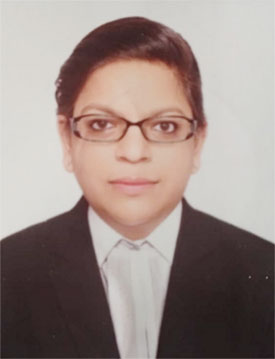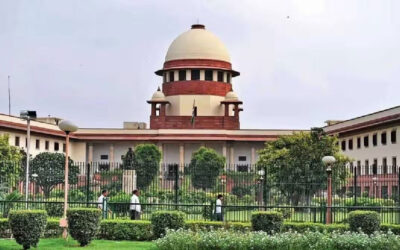The Protection of Children from Sexual Offence Act or POCSO as it is commonly called has been very much in the news these days, more so because of the controversial judgements passed by the Bombay High Court Justice in certain child abuse cases. The Act was also otherwise being widely discussed due to the 2019 amendment made to it when the minimum punishment for aggravated as well as penetrative sexual assault on children below 16 years was increased from 10 to 20 years, extendable to life imprisonment or death.
The India Legal System has come a long way since the days India got its independence. The same can be assessed by the fact that an economist Intelligence Unit Report that has as recently as 2019 examined the responses of around 60 countries regarding the issue of child abuse and rated that India’s legal framework for protecting children from sexual abuse and exploitation is the highest among all the surveyed 60 countries. In fact, India has outranked even United Kingdom, Sweden and Australia, the top three countries that are considered to have the best environment for children as concluded by this report.
POCSO Act 2012 and its corresponding Rules were basically enacted to protect the children from various heinous offences and to provide the quickest possible redressal to the aggrieved with minimum grief to the children involved. The basic thought behind this act was to introduce child friendly judicial mechanisms for dealing with the offences that have been outlined therein. Statistics reveal that one in every two children is a victim of sexual abuse in India and what is worse is that in the maximum cases, the perpetrator is known to the aggrieved child and hence is in a position of trust. This relationship also to some extent hinders the victim in approaching the authorities.
The onset of the pandemic has also forced the people to remain within the four walls of their homes thereby causing a situation of forced intimacy of sorts where a child due to adequate external stimuli remains untouched with external stimuli and also looses the perspective that external exposure provides in order to appraise a person to judge between what is right and what is wrong.
Unlike another Act that was passed in the year 2013 namely The Sexual Harassment of Women at Workplace ( Prevention, Prohibition & Redressal) Act, The POCSO Act is gender neutral. This neutrality is seen through the definition that the Act provides to the word child as ‘any person’ below the age of 18 years. The POCSO Act hence sets a gender-neutral tone for the legal framework available to child sexual abuse victims. Consequently, a child of any gender who has been sexually wronged has access to the remedies provided under the act. The act also does not distinguish between perpetrators of child sexual abuse on the grounds of gender, and there have been instances where the courts have convicted women for such abuse.
Another exclusive feature of the Act is the Legal obligation it places on every person who suspects or has knowledge of a sexual offence being committee against a child to report it either to the police or to the Special Juvenile Police Unit. The lack of such reporting would render the person with the knowledge of the abuse liable for punishment. The Act thus takes matters a step ahead by not only making provisions for punishing the perpetrators, but also the people who kept quite after witnessing or having knowledge of the child abuse. The Act also places responsibility on any person in charge of a company or an institution who fails to report the commission of a sexual offence relating to a subordinate under their control and makes him liable to be punished with imprisonment and a fine. Another point to take note is that no limitation has been placed under the Act for reporting an offence, this might have been done because usually the trauma that a child endures during abuse makes them incapable of voicing their grievances and their age does not allow them the confidence or the means to approach the concerned authorities. These problems are sometimes resolved when a child grows up and wants to seek justice by filing a complaint at a later date which purpose would have been defeated if a limitation period had been imposed on such cases.
Apart from looking at the legal aspects, the Act has also taken humanitarian aspects into consideration by making the special courts stipulated under the Act to be child-friendly. There are provisions such as making a child-friendly atmosphere in the court premises by allowing a family member, a guardian, a friend or a relative, in whom the child has trust or confidence, to be present; allowing frequent breaks for the child during the trial; and ensuring that the child does not have to face the accused during evidence collection as well as cross examination.
The court has also been empowered to hold in-camera proceedings f the situation so merits where the presence of all but those related to the case is allowed. The child on the other hand may retain his/her parents or another adult they trust. The Act has gone a step ahead and incorporated guidelines that if the case so requires, support from NGOS or social workers as well as child experts in pre-trial and trial stages may also be garnered.
The sections of the POCSO Act may be added by the police at the time of the filing of the FIR and may also be added with other crimes in the IPC. The Act is also applicable to crimes that happen over the internet and is not limited to only physical crimes.
As per a recent study in March 2021 conducted by the Kailash Satyarthi Children’s Foundation, “Child sexual abuse is one of the most pressing concerns of the day. The rising number of cases of children who are reported to have suffered some form of sexual abuse is indicative of the failure of the State and society to provide children with an environment conducive to growth, in accordance with the United Nations Convention on the Rights of the Child. However, it is also an opportunity to take cognizance of the problem and strive towards getting justice for victims, and aim to prevent future instances of child sexual abuse. The rising public consciousness and media attention, along with the proactive measures taken by the judiciary in the last few years is proof that the right of children to live with dignity is finally getting the attention it requires.”
Despite all that is being done for the protection of child rights in India, the fact that out of 1,o23 fast track courts to be set up, only 612 are functioning as of now as per the data available and the need of the hour says that all sanctioned courts must be established as soon as possible so that justice can be meted out to 89% of the child sexual abuse cases that are still pending in the courts of law.
POINTS TO BE NOTED AS PER THE POCSO ACT AND RULES:
- Any children housing institution or coming in regular contact with them is required to conduct a periodic police verification and a thorough background check of each employee who interacts with a child.
- An institution must give special regular training in order to sensitise its employees on child safety and their protection.
- More importantly, it has to adopt a child protection policy that is based on the principle of zero tolerance to violence against children.
- Section 15 (Punishment for storage of pornographic material involving a child) amended to introduce a fine (Rs 5,000/- on the first occasion, Rs 10,000 on the second occasion) for not reporting child porn material, which could be extended to imprisonment if such material is propagated. If the material is used for commercial purposes, then the minimum punishment will be imprisonment for not less than three years which may extend to five years or with fine or both and in the event of second or subsequent conviction with imprisonment for a term which may not be less than five years which may extend to seven years and also liable to be fine or with.
- The NCPCR received 354 complaints through POCSO e-Box during the last three years, i.e., 2017-18, 2018-19, 2019-20 and the current year 2020-21 (till 31 January, 2021). As an outcome of regular follow-up, out of these 354 complaints, 140 complaints have been addressed conclusively.


